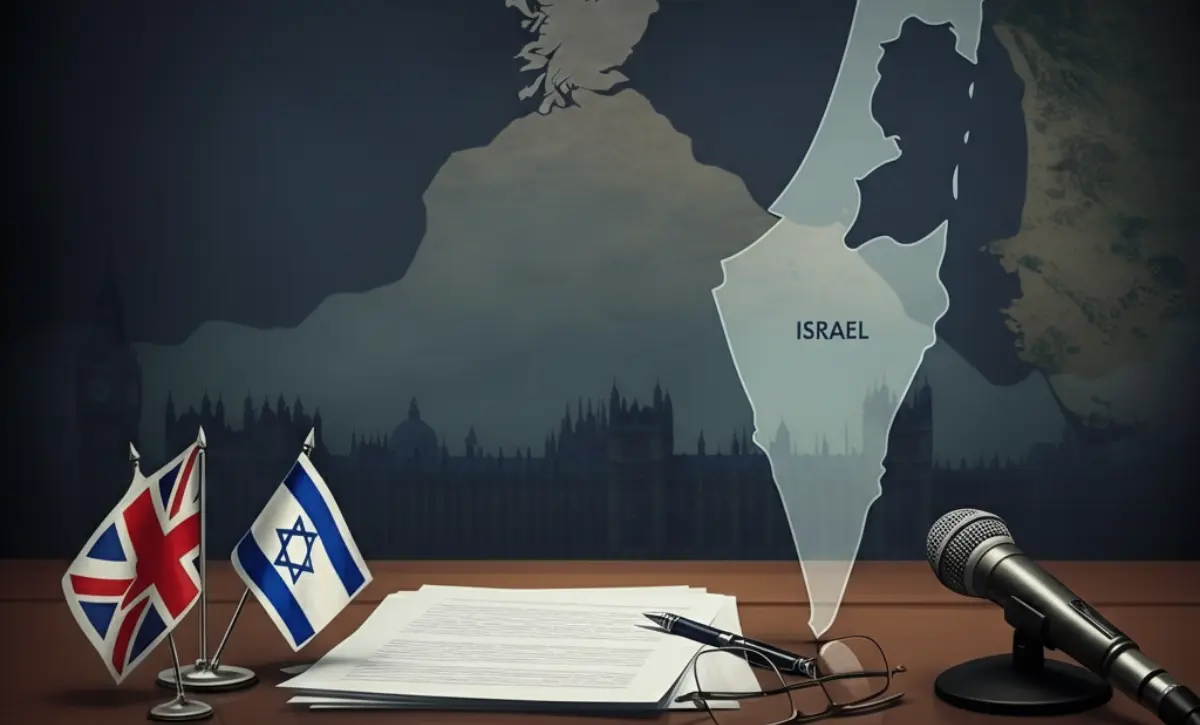Ehud Barak, Israel’s former prime minister and once a top military commander, is making headlines again. He has stepped into the spotlight with sharp criticism of the Netanyahu government and is warning that fresh elections may be the best way forward for a country facing intense internal and external pressures. Barak’s voice, once a driving force behind pivotal moments in Israel politics, is resonating well beyond the borders of the Middle East—including in the UK.
Barak Confronts Israel’s Crisis
Barak isn’t someone who minces his words. Addressing rallies, speaking to international media, and writing in Israeli and global outlets, he argues that the current government’s handling of the Gaza conflict and stagnating ceasefire talks undermines Israel’s security. He points to missed opportunities for a peaceful resolution and insists the absence of a cohesive plan for Gaza leaves Israel vulnerable to ongoing threats, not only from within but also from Iran and other regional adversaries.
Where some see division, Barak sees a crucial chance for Israel to regain its footing as a democracy that values both security and dialogue. “We need leadership that brings unity, not further polarisation,” he recently declared. His repeated calls for a government shake-up are sparking passionate debate across Israel and ripple out to communities connected to the region—including those in the UK.
A Look Back: Barak’s Road from Soldier to Statesman
Ehud Barak’s journey is well known to followers of Israel politics. After rising to the top of the Israel Defense Forces, he pivoted to public service in the late 1990s. Winning the premiership in 1999, Barak tried to reshape peace efforts with both Syria and the Palestinians. His time in office was dramatic and, at times, controversial—culminating in the failed but historic Camp David Summit of 2000. He later served as Defence Minister in Netanyahu’s cabinets, directly shaping policies on the West Bank, Gaza, and Iran’s nuclear ambitions.
However, it’s Barak’s willingness to step back into the public arena that captures attention now, especially as he champions a new path forward for Israel.
Why Barak’s Views Matter in the UK
What’s happening in Israel is never far from the attention of British policymakers and the UK press. The UK government places great importance on Middle East security and regularly engages Israel on issues ranging from ceasefire negotiations to regional threats involving Iran. Stability in Israel means deeper trade, stronger tech partnerships, and a more secure environment for everyone, from London to Tel Aviv.
Barak’s strong stance on the need for transparent government and renewed diplomacy directly touches on matters of UK foreign policy. Many in the British Jewish and Muslim communities closely follow events in Tel Aviv, Jerusalem, and the West Bank. Discussions around UK-Israel relations, economic ties, and diaspora concerns are increasingly influenced by voices like Barak’s, who openly challenge the status quo.
Israel Politics at a Crossroads
The current moment in Israel is fraught with anxiety and hope. The war in Gaza, continued tensions with Iran, and political protests on the streets have all created an atmosphere where change feels not just possible but necessary. Barak and other opposition voices sense an opportunity for Israel to rebuild trust at home and abroad.
For observers in the UK, this period is crucial. Business leaders want to know how changes in Jerusalem might affect trade or collaboration in defence and cybersecurity. Diplomats and academics are watching for signs that Israeli leaders may chart a new course—perhaps with a renewed commitment to ceasefire talks or new negotiations on the future of Gaza and the West Bank.
Ehud Barak: At a Glance
- 1959: Enlists in the IDF, climbs the ranks to Chief of General Staff.
- 1995: Begins political career as Israel’s Minister of Internal Affairs.
- 1999: Becomes Prime Minister, seeks regional peace.
- 2001: Exits office, later returns as Defence Minister in critical years for Israeli security.
- Present: A leading critic pressing for a new vision in Israeli government and society.
What Comes Next for Israel and the UK?
Looking ahead, several questions are on the minds of both Israelis and Britons:
- Will public demonstrations in Israel fuel further calls for change in government?
- Can coalition fractures within the Knesset lead to a snap election?
- How will polling numbers shift if Barak’s message gains traction?
- What role will the UK play in supporting renewed ceasefire discussions or new rounds of peace talks?
- How might fresh Israeli leadership, potentially influenced by Barak, impact UK-Israel relations economically and diplomatically?
For more context on UK-Israel diplomatic relations and current events, you can visit the UK government’s official page on UK-Israel relations.
The situation in Israel remains fluid. As debate intensifies around Middle East security and the reach of British foreign policy, Ehud Barak’s leadership—combining experience, urgency, and a push for genuine change—looks set to remain in the spotlight.
For UK readers, following the evolving story of Ehud Barak is more than an exercise in foreign affairs: it’s a window into the hopes and challenges defining one of Britain’s key diplomatic partners.
You may also read : Afghanistan Clinch Victory Over Zimbabwe in Nail-Biting Finish
You may visit our official website : usatimes


